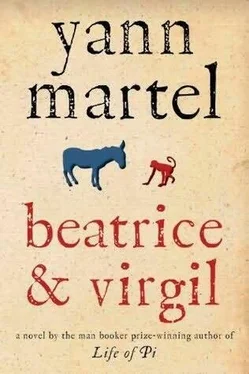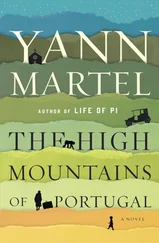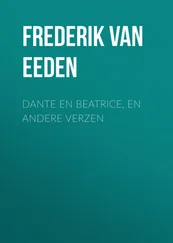Yann Martel - Beatrice and Virgil
Здесь есть возможность читать онлайн «Yann Martel - Beatrice and Virgil» весь текст электронной книги совершенно бесплатно (целиком полную версию без сокращений). В некоторых случаях можно слушать аудио, скачать через торрент в формате fb2 и присутствует краткое содержание. Жанр: Современная проза, на английском языке. Описание произведения, (предисловие) а так же отзывы посетителей доступны на портале библиотеки ЛибКат.
- Название:Beatrice and Virgil
- Автор:
- Жанр:
- Год:неизвестен
- ISBN:нет данных
- Рейтинг книги:5 / 5. Голосов: 1
-
Избранное:Добавить в избранное
- Отзывы:
-
Ваша оценка:
- 100
- 1
- 2
- 3
- 4
- 5
Beatrice and Virgil: краткое содержание, описание и аннотация
Предлагаем к чтению аннотацию, описание, краткое содержание или предисловие (зависит от того, что написал сам автор книги «Beatrice and Virgil»). Если вы не нашли необходимую информацию о книге — напишите в комментариях, мы постараемся отыскать её.
A famous author receives a mysterious letter from a man who is a struggling writer but also turns out to be a taxidermist, an eccentric and fascinating character who does not kill animals but preserves them as they lived, with skill and dedication – among them a howler monkey named Virgil and a donkey named Beatrice…
Beatrice and Virgil — читать онлайн бесплатно полную книгу (весь текст) целиком
Ниже представлен текст книги, разбитый по страницам. Система сохранения места последней прочитанной страницы, позволяет с удобством читать онлайн бесплатно книгу «Beatrice and Virgil», без необходимости каждый раз заново искать на чём Вы остановились. Поставьте закладку, и сможете в любой момент перейти на страницу, на которой закончили чтение.
Интервал:
Закладка:
The taxidermist said nothing. Henry was about to repeat his question but he thought better of it. He waited. After a long while, the taxidermist spoke.
"At first they didn't see. They heard. They were standing by the village pond among some bushes, sipping at the water's edge, when they heard screams. They looked up and saw two young women wearing long skirts and heavy peasant boots running for the pond, clutching bundles to their chests. Some men were behind them, not in hot pursuit but rather seeming to enjoy the women's flight. Terror and the grimmest determination were written on the women's faces. First one reached the pond, then the other. Both ran into it without a pause. When they were thigh-deep in the water, they dropped what they were carrying.
"It was then that Virgil and Beatrice saw that their bundles were swaddled babies. The women pushed their babies underwater and held them there. Even after the few bubbles stopped popping at the surface, there was no hesitation on their part, no flexing of the arms. On the contrary, the women continued to move deeper into the pond, kicking at their skirts and losing and regaining their footing. The men lining the edge of the pond-there must have been ten or so-far from offering any kind of help, jeered the women on.
"When she was certain that her baby could no longer be alive, yet still clutching it beneath the surface, one of the women, now past her waist in the black water, plunged headfirst and immediately was drowned. Neither she nor her baby broke the surface again. They both sank to the bottom. The other woman tried to do the same but could not manage it, even when it was obvious that her baby, like the other, was dead. She kept coming up for air, coughing and snorting, which provoked laughter among the men, who shouted advice on how best to drown. Whereas the first woman's death had proceeded with the swiftness of gravity, the second woman's took longer. For minutes she stood in the water, shivering and staring at its surface and looking at the men on the shore and attempting again to drown herself, all done without any show or any effort to communicate, only with the grave look of someone trying to kill herself. Her baby was gone and she was determined to follow it close behind. Finally, with a glance up to the sky, lifting the soggy mass of her baby out of the water and pressing it to her chest, the woman forcefully threw herself forward and managed to end her days. A hand clawing at the surface of the water, a muddied boot kicking up awkwardly, a bubble of skirt briefly floating-then she was gone. Ripples faded and the pond was still once more. The men cheered and moved on."
"And Beatrice and Virgil in all this?" Henry asked quietly.
"They neither moved nor made a sound the whole time and they remained unnoticed. As soon as the men dispersed, they fled the village. Images kept pressing upon them. Beatrice could see the face of one of the babies, the first one to be drowned, a fleeting, expressive pinkness, with a small escaped hand reaching up to its mother. Another face harried Virgil: that of a boy-he could not have been more than sixteen or seventeen years old. In his pursuit of the women, he slowed and kicked the ground in their direction, throwing up a cloud of dirt and pebbles, his kicking leg raised high in the air as he hopped on the other to a stop-this done with the easy, elastic vigour of youth, accompanied by a whoop and a holler. Then he started running after the women again. He was one of the loudest and most excited at the pond's edge."
"And he's the one they run into a few days later?"
"Yes, as I just read to you," the taxidermist replied.
"It's after they flee the village that Beatrice and Virgil come to the spot where they have the conversation about a pear?"
"That's right."
There was silence, that silence the taxidermist was so comfortable with, in person and in his writing, that silence in which things can grow or rot.
The taxidermist spoke first. "I need help with the games Virgil and Beatrice are going to play."
The words games and play -but said in the gloomiest voice and with the darkest expression. Henry felt a throb in his head.
"Tell me, the boy in your play-what happens to him after he kills Beatrice and Virgil? Is that covered in your allegory about animals?"
"No. I stay with the animals. I don't want games that need a board or dice or anything like that."
Henry remembered the story the taxidermist had sent him, "The Legend of Saint Julian Hospitator". Henry now understood the taxidermist's keen interest in the Flaubert story: Julian slaughters quantities of innocent animals, but it doesn't affect his salvation. The story offers redemption without remorse. That would be an attraction to a man who had something to hide.
The grocer across the street had got it right, Henry realized: a crazy old man. Sarah, in one glance, had got it right: a creep. The waiter at the cafe had got it right. Why had he taken so long to see it? Here he was, rubbing shoulders with a stinking old Nazi collaborator, now casting himself as the great defender of the innocent. Take the dead and make them look good. How was that for murderous irrationalism neatly packaged and hidden? Taxidermy indeed. Henry now understood why all the animals in the showroom were so still: it was dread in the presence of the taxidermist. Henry shuddered. He wanted to wash his hands, his soul, of this man forever. He felt tainted by him.
Henry looked at the taxidermist. "I'm leaving," he said.
"Wait," the taxidermist replied.
"What for?" Henry snapped.
"Take my play with you." The taxidermist gathered the pages on the counter, seven or eight of them. "You can have the whole play." He went to his desk and hastily collected in his large hands all the pages lying on it. "Read it and tell me what you think."
"I don't want your play. Keep it," Henry said.
"Why not? It would help me."
"I don't want to help you."
"But I've been working on it for so long."
"I don't care."
Henry looked across the room at Beatrice and Virgil. He felt a pang of sadness. He wouldn't be seeing them again. Such lovely animals.
He turned back to the taxidermist because the man was stuffing pages from his play into the pockets of Henry's jacket. Henry grabbed the pages and slammed them onto the counter.
"I told you, I don't want your damn play. Here, have these too."
Henry took out the parts of the play he had brought with him and threw them down. The pages fluttered in the air and skittered across the floor.
"Well, in exchange, take this," the taxidermist said calmly.
He turned away momentarily. When he was facing Henry again, he had a short, blunt knife in his hand. He stabbed Henry. He wasn't even hurried about it. He looked at Henry, then drove the knife into his body, just below the ribs. It took Henry a moment to realize what had happened. The pain was briefly dulled by utter disbelief. The taxidermist stabbed him a second time, but instinctively Henry put his hands in the way and they took some of the thrust.
"What, what…?" Henry puffed.
Henry could feel wetness beneath his shirt and there was blood all over his hands. Suddenly fear and pain shot through him electrically. A keening sound emerged from his mouth. Gripping the counter so as not to fall over, he turned and with leaden legs headed for the door of the workshop. He must have run, but it felt like a shuffle to him. With every beat of his heart his whole body was jolted and more blood poured out of him. He was petrified that the taxidermist would catch up with him and finish him off. The words "Sarah! Theo!" pulsed in his head.
He reached the door. In turning to go through, he caught a glimpse of the taxidermist. He was walking up behind him, his face passive, the red knife still in his hand.
Читать дальшеИнтервал:
Закладка:
Похожие книги на «Beatrice and Virgil»
Представляем Вашему вниманию похожие книги на «Beatrice and Virgil» списком для выбора. Мы отобрали схожую по названию и смыслу литературу в надежде предоставить читателям больше вариантов отыскать новые, интересные, ещё непрочитанные произведения.
Обсуждение, отзывы о книге «Beatrice and Virgil» и просто собственные мнения читателей. Оставьте ваши комментарии, напишите, что Вы думаете о произведении, его смысле или главных героях. Укажите что конкретно понравилось, а что нет, и почему Вы так считаете.












